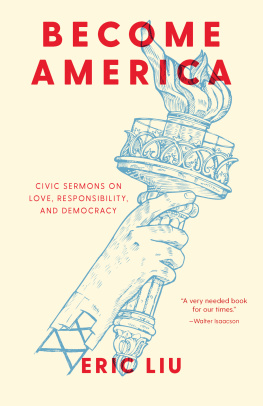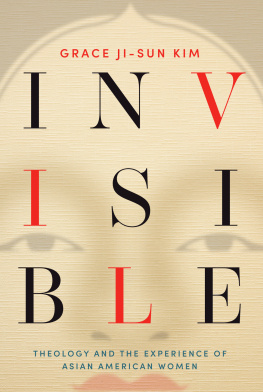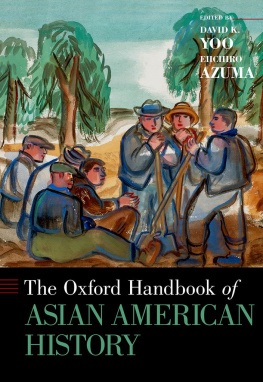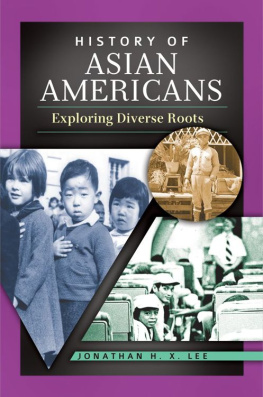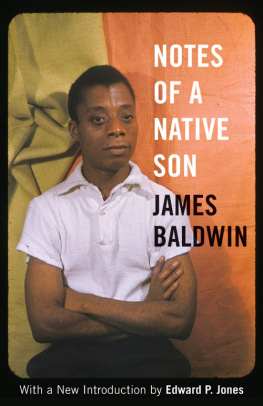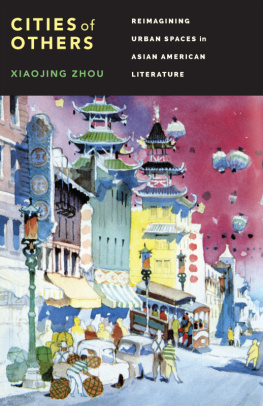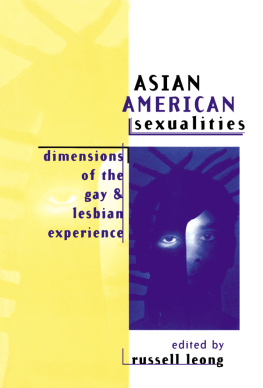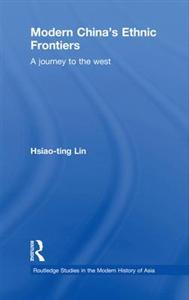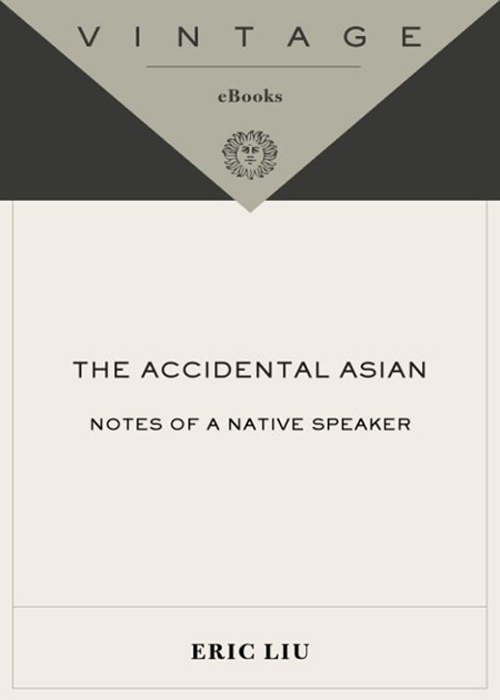
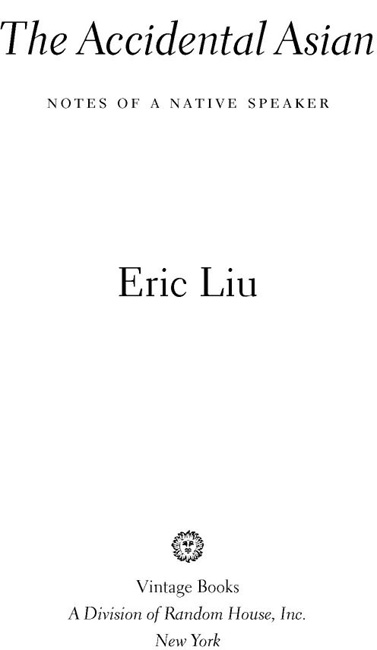
Table of Contents
ACCLAIM FOR Eric Lius
The Accidental Asian
Wonderfully honest.... Half cultural commentary, half-memoir, The Accidental Asian is a remarkable accomplishmentboth as a defense of assimilation and an intense recounting of personal loss. Newsweek
Lius voice is intelligent, thoughtful, and most of all honest. The Washington Post Book World
Anyone with an Asian face in America should read Lius book, and anyone interested in our future together as a multi-racial democracy should read it as well. Asian Week
This book is so mellow and witty that one almost misses its provocative central thesis.Seattle Times-Intelligencer
Lius vivid imagery captivates readers the same way Gus Lee did in China Boy.The Cleveland Plain Dealer
Song for My Father
By my bed, gathering a little dust now, Im afraid, is a small paperback book. Ive kept it there ever since it was published four or five years ago, and its become one of those things in my apartment that I see every day without seeing anymore. On top of the paperback book is a thin pamphlet, The Healing of Mindand Soul in the Twenty-third Psalm, given to me by a friend of the family, Pastor Wan. Beneath the paperback is a study Bible, New International Version, also given to me by the pastor, and a Dover edition of the Book of Psalms.
Im not a religious person; or, rather, I wasnt raised to be a religious person: never belonged to a church, never became acquainted with the grammar and word of the Good Book. But over the years, there have been more than a few occasions when Ive read that pamphlet, that Bible, and those psalms in earnest, finding in their allegories and metaphors something short of grace, perhaps, but something greater than mere solace.
So its no accident that in this stack of salves Ive included this slender paperback. It is unlike any other book I own. On the cover, set against a faded backdrop of his own handwriting, is a color photograph of my father. In the photograph, taken sometime in the 1960s, my fathers head is turned to his left, his mouth slightly open in a relaxed smile. Even behind heavy-framed glasses, his eyes appear to be seeing something clearly. It seems he might be saying something soon, something thoughtful, or maybe playful. A lock of his black hair, bunched like wet grass, has fallen out of place, sweeping across his forehead. His skin, still smooth and full, tells me he was a young man not that many years before the picture was taken. But his visageknowing, kind, self-awaretells me he has already become the man I knew as Baba. That picture is why I keep the paperback at my bedside. It keeps my father close, sets his gaze upon me as I sleep.
The book was compiled by several of my fathers childhood friends after he died in 1991. This wasnt, as far as I know, some sort of Chinese tradition, publishing a memorial book for a departed chum. It was just an act of loyalty; of love, if I may say that. In part, the book is a record of grief, containing the obituary from the Poughkeepsie Journal, my eulogy, an elegiac essay by my mother. But for most of its 198 pages, it is actually a prose reunion, a memoir of the idyllic adolescence of a band of boys in postwar Taiwan.
There are pieces in the book, written by my father and his brothers and his classmates, about high school life, about a favorite teacher, about camping and fishing trips, about picaresque adventures where nary an adult appears. There are photographs too; in many of them, Dad and his friends are wearing their school uniforms, baggy and vaguely military. One snapshot I remember vividly. Eight or nine of them are walking up a dirt road, jesting and smiling. And theres my father at the end of this happy phalanxkhaki hat a bit too big, arm pumping jauntily and foot raised in mid-march, singing a song. The face is my fathers, but the stance, so utterly carefree, is hardly recognizable. I stared at that picture for a long time when I first got the book.
Its through these photographs that Ill read the book every so often, searching the scenes for new revelations. Thats partly because the photographs are so wonderful, soft black-and-white images of an innocence beyond articulation. But its also, frankly, because I do not understand the text. Almost all the entries, you see, are written in Chinesea language that I once could read and write with middling proficiency but have since let slip into disuse. Though I know enough to read from top to bottom, right to left, and back to front, I recognize so few of the characters now that perusing the text yields little more than frustration, and shame. I know what the book contains only because Mom has told me. And shes had to tell me several times.
On one or two occasions Ive sat down with my pocket Chinese-English dictionary, determined to decipher at least the essays that my father wrote. This was painstaking work and I never got very far. For each Chinese character, I first had to determine the ideographic root, then count the brush strokes, then turn to an index ordered by root and by number of strokes, then match the character, then figure out its romanized spelling, then look up its definition. By the time I solved one word, Id already forgotten the previous one. Meaning was hard enough to determine; context was even more elusive.
So it is, I sometimes think, with my fathers life. On the one hand, its easy to locate my father and my family in the grand narrative of the Chinese American experience. On the other hand, it doesnt take long for this narrative to seem more like a riddle than a fable. Leafing through the pages of the memorial book, staring dumbly at their blur of ideographs, I realize just how little I know about those years of Babas life before he arrived in America, and before I arrived in the world. I sense how difficult it is to be literate in another mans life, how opaque an inheritance ones identity truly is. I begin to perceive my own ignorance of self.
When Chao-hua Liu came to the United States in 1955, at the age of eighteen, he was Chinese. When he died thirty-six years later, he was, Id say, something other than Chinese. And he had helped raise a son who was Chinese in perhaps only a nominal sense. But what, ultimately, does all this mean? Where does this Chineseness reside? In the word? In the deed? In what is learnedor what is already known? And how is it passed from one generation to the next? Some of the answers lie, I know, in a book I am still unable to read. But there are other answers, I suspect, in a book I must now begin to write.
If I could render as a painting the image I have of my father as a young man, it would be a post-impressionist work, late Czanne, rather than a work of realist precision. Actually, it would be more like an unfinished Czanne: blocks of color; indistinct shapes; and then, suddenly, great swaths of blank canvas. The scraps of knowledge I have of my fathers pre-American life come from letters he wrote, from my mothers secondhand memories, from family lore. They arent random fragments, exactly. But they arent full-fledged stories either. Theyre more like scenes, symbolic images that can be arranged in rough sequence yet still resist narration.
Here is some of what I know about my Chinese father: That he was the second of six brothers, born in Nanjing in 1936. That his father was a pilot and a general whose given name, Guo Yun, translates roughly as Deliverance of the Nation. That he fled in the night with his family to Taiwan when Communist forces had advanced too close. That when he was a boy, he raised pigeons in a cage on the roof of his house and then one day set them all free. That he was ill for a lengthy period as a child, but took the opportunity of being bedridden to read the Chinese classics over and over again. That the medication he took would prove, years later, to have damaged his kidneys. That his fathers driver taught him how to drive a jeep at age twelve, or maybe thirteen. That his familys cook taught him how to make dumplings. That he was an outstanding student and mischievous, though mischievous in the safe, authority-affirming way of an outstanding student. That he left his home and his country after high school.
Next page

